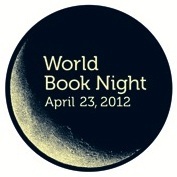2012 - BadgerLunch Webinar Series
BadgerLink provides access to quality online information resources for Wisconsin residents at http://www.badgerlink.net/.
Want to learn how BadgerLink can help you?
Join BadgerLunch Sessions
Thursdays at Noon
30 - 45 minute sessions
30 - 45 minute sessions
To view the full announcement go to https://docs.google.com/open?id=0B5YmcgoABMUOODUxMDYwZjItZGM0NC00MjBmLWI0NTAtMDBlM2UyMmQ3MTk0
Discover BadgerLink
Find resources that you may not realize are available through BadgerLink!
1.19 Wisconsin Digital Archives: Find Information in Wisconsin’s Collection of Electronic State Documents
To Join Click: http://ow.ly/84pkS
1.26 Songbook Database: Easily Locate Sheet Music Available for Interlibrary Loan
2.2 BadgerLearn: Explore Wisconsin’s Collaborative Learning Space and Training Portal
2.9 Consumer Reports: Connect to Expert, Independently Conducted Studies that Empower Consumers
2.16 Found In Wisconsin: Uncover Wisconsin's Digital Collections
2.23 How to Promote BadgerLink: Learn About Ways to Get the Word out About BadgerLink
3.1 Q&A: Get the Answers to Your BadgerLink Questions
Kara Ripley, Reference and BadgerLink Training Librarian, Department of Public Instruction kara.ripley@dpi.wi.gov









